Heineken, Matalan, Dickies: Everything that matters this morning
Good morning and welcome to Marketing Week’s round-up of the news that matters in the marketing world today.
Marketing industry reacts to appointment of digital, culture, media and sport minister
New prime minister Liz Truss has appointed former marketer Michelle Donelan to the role of secretary of state for the Department of Digital, Culture, Media and Sport (DCMS).
Industry bodies have been reacting to the appointment of Donelan who worked in marketing before moving to politics. She held marketing roles at businesses like Marie Claire as well as World Wrestling Entertainment (WWE).
The Data and Marketing Association (DMA) has welcomed the appointment of Donelan and is calling on her to support pieces of legislative reform that would aid the industry. In particular, the DMA is calling on the new DCMS minister to carry forward the Data Protection and Digital Information Bill “with urgency”.
“This is a timely opportunity to support business growth by reducing red tape and offering greater clarity on data laws,” says DMA CEO Chris Combemale. “In particular, we hope to establish further clarity over the use of legitimate interest as a means of processing personal data for marketing purposes.”
IPA director Paul Bainsfair congratulates Donelan on her appointment. He appeals to her to work with the ad industry to find solutions and ways forward on issues such as the planned privatisation of Channel 4, impending HFSS advertising legislation, the Online Harms Bill, the Online Advertising Programme and the Gambling Review White Paper.
“This is our eleventh Culture Secretary in ten years and our industry needs the stability that a long-term holder of the office can provide,” says Bainsfair.
“We hope that she will take an active and positive interest in the advertising industry, recognising our importance to UK jobs, culture, and the economy.”
Matalan introduces 18 third-party brands to its offering
Matalan is adding 18 third-party brands, including Clarks, Hype and Ben Sherman to its online offerings.
The external brands launched on Matalan’s website yesterday (7 September), alongside an exclusive range from clothing brand Girls on Film
“We are thrilled to onboard these popular and well established third party brands, to offer our customers even more choice by complementing our own brand offering and launching another exciting phase of our strategic growth journey,” says Matalan chief operating officer James Brown.
The retailer will be exclusively stocking a new line from Girls on Film for the next week. The collection is launched in collaboration with 2018 Love Island winner Dani Dyer and is “inspired by her personal style”.
The third-party brands will join Matalan’s own label brands on its website, which include Papaya, Et Vous, Be Beau and Taylor & Wright.
READ MORE: Matalan adds third party brands including Hype and launches ‘Girls on Film by Dani Dyer’
Beavertown completely sells to Heineken
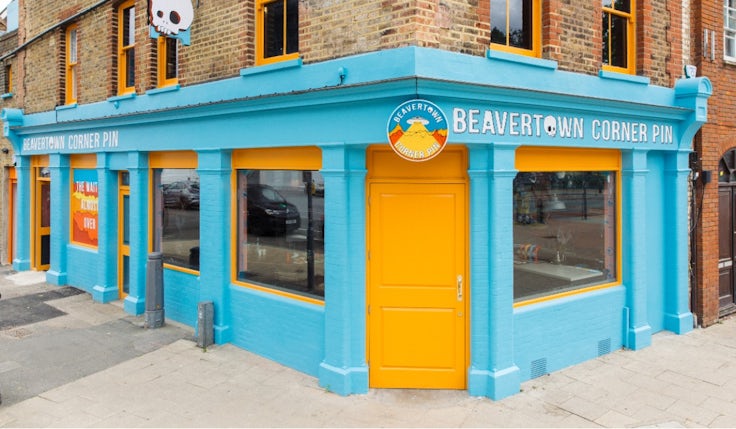 Craft brewer Beavertown has been completely bought by Heineken. In 2018, the drinks giant took a 49% minority stake in the London-based craft beer business, which was worth £40m.
Craft brewer Beavertown has been completely bought by Heineken. In 2018, the drinks giant took a 49% minority stake in the London-based craft beer business, which was worth £40m.
The purchase will see founder Logan Plant step down as CEO of the business. Heineken’s Jochen Van Esch, who is craft development director at the business will take over leadership of the company as managing director. Plant will retain the title of “consultant” to the business.
Plant, who is the son of Led Zeppelin frontman Robert Plant, founded Beavertown in 2012. The brand now employs 160 people. It used the money raised from the 2018 share sale to expand, including opening a new brewery.
Beavertown’s founder says the culture of the business, including its branding and “drive to brew the very best tasting beers”, will continue.
The craft beer company is not the first to sell up to a drinks giant. In 2015, AB InBev bought Camden Town Brewery and in 2017 Carlsberg UK entered into a joint venture with Brooklyn Brewery to buy London Fields Brewery (before the business ultimately went bust last year).
READ MORE: Beavertown Brewery bought out by Heineken
Advertising watchdog investigates whether telecoms companies are misleading consumers over mid-contract price rises
The Committee of Advertising Practice (CAP) is looking at whether telecoms companies should have to state more clearly the possibility of mid-contract price rises, in order to avoid misleading consumers.
Mobile and broadband providers are allowed to make mid-contract price increases, which are usually linked to inflation. The CAP advertising codes already requires that the possibility of price-increases should be made clear to consumers when they are making decisions about contracts and in advertising.
However, as CAP notes, telecoms contracts are “often complex products”, and there are many factors that come into play when considering whether potential price increases are given due prominence.
The advertising watchdog is opening a consultation into whether it should bring into play new guidance that it says would make telecoms companies “less likely to mislead consumers in their presentation of information about mid-contract price increases”. The consultation will be open to members of the public and organisations until mid-November.
Earlier this week, The Guardian reported that the UK’s biggest broadband providers are in line for a £1.7bn windfall after they introduce above-inflation price increases for consumers next spring. Many of the country’s main internet providers, including the largest player BT, as well as others like TalkTalk, and Vodafone, use a mechanism to increase the cost of bills annually by the rate of inflation as measured by the consumer prices index (CPI) in January, plus 3.9%
CAP notes that any price rises this year are likely to be felt particularly keenly by consumers.
“While a change to the advertised price during the term of the contract would be material information under any circumstances, in the current climate, rises in the cost of living mean that such increases are likely to have an even greater impact on consumers,” says the watchdog.
READ MORE: UK watchdog to examine whether telecoms companies mislead customers
Dickies highlights ‘icons’ to celebrate its 100-year anniversary

Dickies is celebrating its 100-year anniversary by launching a campaign which highlights the generations of blue-collar workers who have worn the brand’s clothing across the century.
‘Made in Dickies: Generations’ is the second iteration of the Made in Dickies platform, celebrating 100 years of the brand. The campaign spotlights five ‘icons’, small businesses that have been passed down from generation to generation. Short-form videos tell the story of these businesses and how inter-generational hard work and passion has brought them to where they are today.
The campaign features two short-form videos focused on businesses in London that have been passed down through the generations. The Steam Room in Hoxton, Hackney is a former Chinese takeaway opened by Tony Chung’s father 44 years ago when he arrived in London from Hong Kong. When his father retired, Tony converted the space into a dry cleaners, where he offers bespoke laundry services and advice on how to maintain garments to his consumers.
Newington Green Shoe Repairs is another inter-generational small business in London, opened in 1980. Brothers Tevfik and Erkin took over their grandfather’s business, having lost both their father and grandfather to COVID.
These small businesses and makers go to the heart of what Dickies stands for, says the brand. As well as highlighting these ‘icons’, the clothing brand is also highlighting its most iconic styles, which it sees best represent its heritage and evolving cultural relevance.
Dickies partnered with creative agency Breaks on this campaign, which will be shown globally across the brand’s social and digital channels.
Wednesday, 7 September
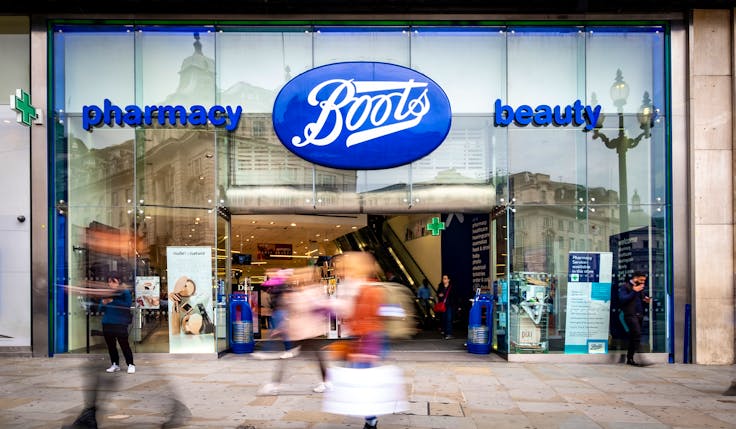
Boots launches new budget range amid cost of living crisis
Boots has launched a new budget brand, which includes products such as toothpaste and shampoo being sold for £1.50 or less.
The retailer says it has introduced the ‘everyday’ brand to help customers access the lowest-priced toiletries on shelves as the cost of living crisis continues.
“At a time when many people are facing choices between heating and eating and we’re all bracing ourselves for a winter of feeling the pinch more than ever, we’re offering a no-compromise range to help customers make small everyday switches to help save money,” says head of beauty Jenna Whittingham-Ward.
The range features more than 60 products, with prices starting at 50p across toiletries as well as skincare, haircare, period products and dental.
It launches in more than 1,000 boots stores, and online, today, while Boots has also already frozen the price of more than 1,500 products until at least the end of the year.
As the Guardian reports, Boots UK chief executive Seb James says, “Sales of beauty products at Boots continue to rise, suggesting customers still want to treat themselves to new makeup, perfume or skincare, despite cost of living pressures”.
READ MORE: Boots launches budget range as UK shoppers cut back in cost of living crisis
New PM Liz Truss expected to cut energy bills for millions
Having been officially appointed prime minister yesterday, Liz Truss is reportedly expected to cut energy bills for millions across the UK, with energy bills being potentially capped at around £2,500.
As it stands, household gas and electricity bills are expected to rise to £3,549 in October. Truss is understood to be planning to borrow billions to prevent households from the high increase in costs, according to the BBC.
It comes as Truss yesterday pledged to “deliver on the energy crisis” as UK consumers continue to struggle.
While it is unknown for how long the government will support households in this way, the overall government support package is expected to come in at around £100bn.
READ MORE: Liz Truss set to cut energy bills for millions
Juul to pay £438.5m in a deal that will restrict the company’s marketing
 Juul Labs, the popular youth vaping brand, is set to pay £438.5m (£380m) in a deal with more than 30 states in the US to end the investigation into its advertising to underage customers.
Juul Labs, the popular youth vaping brand, is set to pay £438.5m (£380m) in a deal with more than 30 states in the US to end the investigation into its advertising to underage customers.
While the company is also fighting a ban of its products in the US, it said that the agreed settlement this week is in line with the company’s marketing practices following a “company-wide reset” in 2019, welcoming the move.
However, Juul still faces nine different lawsuits from other US states over its youth customer base. The investigation by the 30 states in question found that the company marketed its vapes to underage teenagers, such as with social media posts, giveaways on social, ads and PR events.
The settlement of £438.5m will be paid across the next six to 10 years, and amounts to around 25% of the brand’s US sales last year, which came to $1.9bn (£1.7bn).
The firm previously made up for 75% of the US’s vaping market, but now totals around a third of sales following its launch in 2015. In terms of actual impact, the limits from this settlement will not largely impact the company, as its marketing practices were changed following previous scrutiny. It dropped US advertising in 2019.
READ MORE: Juul to pay $440m after years-long investigation into teen vaping
Made.com launches new brand campaign ‘Never Ordinary’ across Europe
The furniture and homeware retailer has launched a new long-term brand platform, ‘Never Ordinary’, across its European markets.
The new platform puts creativity at the core of home, attempting to show the brand’s “authority” when it comes to “exceptional and unexpected design”.
Refreshing the brand comes amidst the company’s profit troubles, with the firm announcing in July that sales were down 22% in the first half of 2022, and that it was expecting losses to widen between £50m to £70m.
The campaign, created with Wonderhood Studios, sees a man arrive at the home of his date, finding himself in a long corridor, from which the doors open to reveal Made products.
“We are super excited to finally be sharing the launch campaign of our new brand platform Never Ordinary,” says brand director Jude Whyte.
She continues: “We know that our customers all have a unique vision of how their homes should be and we wanted to show through this campaign that Made is here to elevate and evolve that vision with them. Our products are designed by people – for people – to help them express themselves in unique ways.”
Barclays launches Community Football Fund to increase access to the game
Barclays is continuing its ‘It All Starts With A Chance’ campaign with the launch of its Community Football Fund to the public, which will offer grants, training, kit and ticket offers to make football “more accessible” to communities across the UK.
The fund is supported by a multi-channel campaign, produced by M&C Saatchi, across social, radio, digital and OOH, highlighting the soft skills that can be built up through playing football.
The 30 second film shows a young player going from playing football, to presenting to her school class.
The fund will offer training and resources to 5,5000 community groups across the UK, aiming to engage more than 300,000 young people in the sport.
“Playing football isn’t just about the skills you learn on the pitch, it’s about the skills that last a lifetime off it,” says Barclays Group head of sponsorship and media, Tom Corbett.
“From confidence to teamwork and leadership, it’s important that all young people have the chance to develop these skills through football. That’s why we have launched the Barclays Community.”
Tuesday, 6 September
Camelot withdraws legal challenge to win back National Lottery
Camelot has withdrawn its legal bid to win back the licence for the National Lottery ahead of the case being heard in the Court of Appeal next week.
Rival Allwyn Entertainment was initially awarded the disputed £6.4bn National Lottery licence by the Gambling Commission in March, a decision Camelot opposed.
“By pursuing the opportunity to be awarded the fourth licence, Camelot has sought to limit the risk that good causes or the Exchequer would have to meet damages if the licence award was found by a court to have been unlawful,” a spokesperson tells Marketing Week.
“However, it has become clear that the potential damages covered by the undertakings needed for the appeal to proceed would have been too large, and involved too great a commercial risk, for it to be reasonable to provide them.
As a result, Camelot explains it is no longer seeking to prevent the enabling agreement being signed prior to the procurement trial, which will take place in January or February, while Allwyn is not seeking damages.
“In accordance with its duties as the operator of the third Lottery licence, Camelot will now cooperate with Allwyn and the Gambling Commission to facilitate an orderly transition to the fourth licence,” Camelot adds.
Allwyn has welcomed the decision, saying it “looks forward to cooperating with Camelot and the Gambling Commission on the transition process”, City AM reports.
On awarding the multinational lottery operator the National Lottery licence for 2024 onwards, the Gambling Commission said it had been impressed by Allwyn’s commitment to “deliver growth and innovation” through investment across its products and channels. In turn, Allwyn promised to “revitalise” the National Lottery.
By April Camelot had launched a legal challenge, claiming it was “shocked by aspects” of the Gambling Commission’s decision to award Allwyn the licence. At the time CEO Nigel Railton claimed the commission had failed to provide Camelot’s 1,000 employees with a “proper explanation”.
With the case set to be heard in court next week, it was reported on Sunday the legal battle could result in more than £1bn being lost for good causes. According to a legal submission from the Gambling Commission, seen by the Observer, the dispute could have caused a gap in the National Lottery from the expiry of the current licence on 31 January 2024 and the commencement of the fourth licence, leading to an “overall shortfall of payment to good causes of at least £1bn.”
Reporting its annual results in June, Camelot’s sales surpassed £8bn following four consecutive years of growth, with the lottery operator claiming performance was driven by an “unmissable brand connection” combined with strong Lotto sales.
Camelot generated more than £1.9bn for good causes during the 2021/2022 financial year, equivalent to £36m a week. This represented the National Lottery’s second best-ever total raised for good causes.
“An incredible £46bn has now been raised for National Lottery good causes – around 65% more than government expectations at launch,” said Camelot chairman Sir Hugh Robertson in June, while Railton praised the “resilient, innovative and responsive business model” the company had created over recent years.
READ MORE: Camelot withdraws National Lottery’s legal challenge
Meta hit with €405m fine for Instagram’s teen data breach
 Meta has been fined €405m (£349m) for breaches of the European Union’s General Data Protection Regulation (GDPR) by social platform Instagram.
Meta has been fined €405m (£349m) for breaches of the European Union’s General Data Protection Regulation (GDPR) by social platform Instagram.
A two-year investigation by Ireland’s Data Protection Commission (DPC) found Instagram had allowed users aged between 13 and 17 to run business accounts on the platform that displayed the users’ phone numbers and email addresses. Instagram was also found to have operated a user registration system whereby teenagers’ accounts were set to ‘public’ by default.
The DPC regulates Meta on behalf of the EU because the company’s European HQ is in Ireland. The penalty comes after the regulator also hit Meta with a €225m (£194m) fine in September 2021 for GDPR breaches at messaging platform WhatsApp.
The latest penalty against Instagram is the second largest to be issued under GDPR following a €746m (£644m) fine for Amazon in July 2021.
Responding to the decision, a Meta spokesperson said: “This inquiry focused on old settings that we updated over a year ago, and we’ve since released many new features to help keep teens safe and their information private.
“Anyone under 18 automatically has their account set to private when they join Instagram, so only people they know can see what they post, and adults can’t message teens who don’t follow them.”
Claiming to have “engaged fully” with the DPC throughout the inquiry, Meta added that it disagrees with how the fine has been calculated and intends to appeal.
Last year Meta – then known as Facebook – said it was pausing plans for an ‘Instagram Kids’ app after revelations the company’s own research had found Instagram could have a negative mental health impact on some teens.
READ MORE: Instagram owner Meta fined €405m over handling of teens’ data
Former F1 marketing boss joins Manchester United
Ex-Formula One marketing boss Ellie Norman has joined Premier League club Manchester United in the newly created role of chief communications officer.
Norman, who left her position as F1 global director of marketing and communications in April, will oversee brand and content for the football club, alongside joining the executive leadership team, Adweek reports.
It is understood Norman will be charged with devising a strategy for fan engagement, communications, content and brand, as well as overseeing digital, social media, PR and brand identity.
Prior to joining F1 in 2017, during which time she developed a three-year plan to revitalise the brand by recruiting a new generation of fans, Norman spent five years at Virgin Media. Her time at the telecoms giant culminated in the role of head of advertising and sponsorship, which saw Norman introduce the business case for adding a brand response layer to the marketing mix.
She also spent more than six years at Honda, serving as European communications manager with responsibility for a £68m budget across 29 markets.
Norman is joined at Manchester United by Matt McKie, who announced last week he was leaving his role as head of global marketing at the International Olympic Committee (IOC). According to Adweek, McKie will become director of consumer marketing later this month, reporting to Manchester United’s CEO of digital products and services Phil Lynch.
In a LinkedIn post, McKie thanked his IOC team for delivering more than 7 billion combined impressions across the Tokyo and Beijing summer and winter Olympic campaigns, as well as “awe-inspiring” films in both opening and closing ceremonies.
A former Nike brand director for football, McKie kicked off his marketing career as consumer and market insight assistant at Unilever, before joining Sara Lee as an assistant brand manager.
Next came a series of brand management roles at GlaxoSmithKline, working on Lucozade and Maximuscle. In 2013, McKie joined Electronic Arts, rising to the position of global brand director for EA Sports FIFA.
READ MORE: Exclusive: Manchester United brings on Former F1 and Olympic marketing chiefs
School of Marketing enlists industry leaders to celebrate rebrand
The School of Marketing is working with a cohort of industry leaders on a rebrand aimed at engaging the next generation of apprentices.
The Level 3 apprenticeship provider has unveiled a new look website, brand positioning and campaign, complete with the tagline ‘Stand on the Shoulders of the Industry Giants’, promoting the access School of Marketing apprentices and mentees get to industry leaders.
The campaign is supported by the likes of Ogilvy vice-chairman Rory Sutherland, L’Oréal chief marketing and digital officer for the UK and Ireland Lex Bradshaw-Zanger, and EY global integrated CTM director Kate Mackie.
The rebrand is aimed at highlighting the expertise, thought leadership and skills development the School of Marketing offers the next generation as they take their first steps in the industry. The intention is to position the social enterprise as a gateway to create new possibilities through apprenticeships and mentoring, building strong relationships within the industry that could prove crucial during such challenging times.
“Our new positioning, ‘Stand on the Shoulders of The Industry Giants’, brings this to life and is an active demonstration of both our purpose and promise to both learners and employers who engage with us,” explains CEO Ritchie Mehta.
“We are proud and grateful for all the incredible support that we receive from leaders within marketing, who believe that it’s important to nurture the next generation of talent from all backgrounds in this way.”
Gymshark takes to Times Square to tackle stereotypes
 Gymshark is hoping to challenge the stereotype of perfectly airbrushed gymgoers by showing the sweaty reality of working out.
Gymshark is hoping to challenge the stereotype of perfectly airbrushed gymgoers by showing the sweaty reality of working out.
The fitness wear brand launched its ‘Look Good, Lift Ugly’ campaign with a billboard on New York’s Times Square, shot on location at Gymshark’s head office gym. Aimed at capturing the authentic expressions of the models mid-workout, the campaign features personal trainer Oyinda Okunowo, TikTok fitness influencer Dave Olesinski and Gymshark community member Jada O’Neill, who was cast by the production team in a London gym.
The idea is to celebrate the hard work gymgoers put themselves through during a tough session at the gym.
Chief brand officer Noel Mack admits in the past Gymshark is as guilty as any company of featuring “perfectly posed and preened models” in its fitness campaigns.
“We had a word with ourselves and decided we wanted to do something to tackle this stereotype. We also wanted to lean on our heritage of encouraging and backing no-nonsense hardworkers in the gym,” says Mack.
“And we wanted to have a bit of a laugh with it at the same time. So, to all those people who worry about their facial expressions or how they look when working out, we’re here to say: ‘We got you’, but at least your outfit will look exceptional.’”
Gymshark is on a mission to become “a household name”, as signalled by the appointment of Very Group CMO Carly O’Brien as vice-president of marketing in June.
Alongside increasing brand awareness and implementing new customer engagement strategies, O’Brien has responsibility for introducing a new regional model as part of an integrated marketing strategy to drive growth in the UK and across EMEA and APAC.
Monday, 5 September
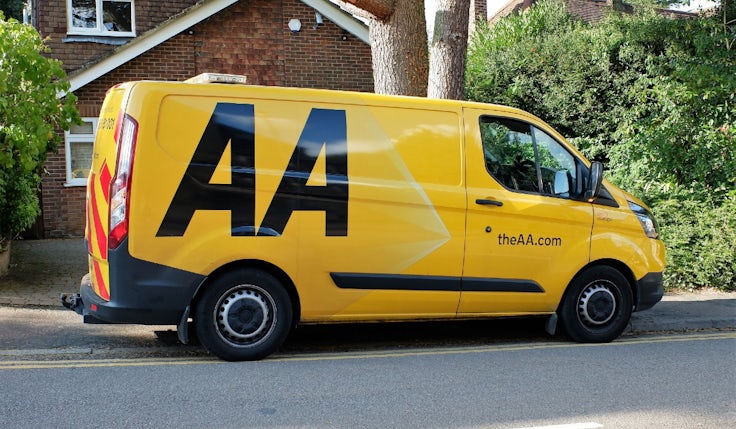 The AA appoints group brand director
The AA appoints group brand director
The AA has appointed Will Harrison as its group brand director and has commenced a strategic review of its advertising agency.
Harrison has been promoted from his role of head of brand marketing at the breakdown services provider. He joined the business in 2020 from mobile network Three, where he was marketing communications lead.
Following Harrison’s role change, his team will report into The AA’s group chief marketing officer Mark Felix. The group CMO says that following these changes the business has decided to embark upon a strategic review of its advertising agency.
Adam & Eve/DDB had been the advertising agency for the brand since 2014. The agency has worked on campaigns for the AA such as ‘Singing Baby’ and ‘Love That Feeling’ with Tukker the dog. Felix describes the agency’s work for the brand as “brilliant” but says it is the right time for the review to take place.
“We feel that the time is right to have a strategic review to explore new options to take the brand forward at this exciting time for the AA. Hence, we are in discussions with several agencies and will report back in due course,” he says.
“We have great ambitions for the future so this is an exciting time to support our market leading brand, propositions, and customer experience”
Rolex increases prices by 5% in UK due to weak pound
Luxury watch manufacturer Rolex has increased its prices by an average of 5% in the UK, due to a slide in the value of the pound.
The value of the UK pound against the US dollar has slide to $1.15, the lowest level in more than 30 years. This decrease in value of the pound meant that Rolex watches could have been comparatively cheaper in the UK compared to other markets.
A spokesperson for the luxury watch brand confirmed that it raised the price of its watches by an average of 5% at the beginning of this month. Watch trade publication WatchPro had reported that Rolex had hiked its prices by as much as 7%.
According to WatchPro a Rolex Submariner no date, cost £7,150 in April. The price as of this month is £7,500, a 4.9% rise. It also reported that the price of a GMT Master II rose from £8,400 to £9,000, representing a 7.1% increase.
Post-Brexit vote in 2016, the pound also saw a crash. Watchmakers were slow to increase prices, creating a cheaper luxury goods market in the UK than elsewhere. This allowed the UK to rise into the top five for Swiss watches, a position which it has maintained since.
READ MORE: Rolex hikes UK prices by up to 7%
Netflix to launch ad-supported tier this November

Netflix is reportedly ready to launch its ad-supported subscription in November, bumping forward the planned launch from next year.
The sooner-than-expected launch is reportedly so that the streaming service can get ahead of rival Disney+, which plans to launch its ad-supported tier in December. The reports say that Netflix’s new tier will launch in the US, France, Germany, Australia and Canada among other places, and is expected to be priced between $7 (£6.10) and $9 (£7.85).
Currently, Netflix’s cheapest tier costs $9.99 (£8.71). A standard subscription costs $15.49 (£13.51).
The new tier will be in addition to existing tiers, meaning that existing subscribers will not have ads introduced.
A Netflix spokesperson says that reports of a launch-date were just “speculation” and that the streaming service was still deciding how to launch its new ad-funded tier.
In July, the business reported that it had lost one million subscribers during the second quarter of 2022.
In an investor call that same month Netflix’s chief operations and product officer Greg Peters expressed confidence that the streaming service can “deliver an experience which is fundamentally different from the ad experience” on broadcast TV.
READ MORE: Netflix to launch cheaper ad-supported subscription tier in November
Waitrose admits to preventing rivals from opening stores
Waitrose has admitted to using its land agreements to prevent rival supermarkets from opening stores, says the Competition and Markets Authority (CMA).
The competition watchdog conducted an investigation between 2010 and 2019, which found that Waitrose had conspired with landlords to prevent rivals being able to open nearby stores. It says that the supermarket used the practice in seven locations across the UK, including in Notting Hill Gate, Swindon and Bromsgrove.
The practice breaks competition law says the CMA. Waitrose has agreed to rewrite the land agreements in question. Rules to prevent supermarkets from entering into such agreements have been in place since 2010.
“Families across the UK are facing the rising cost of living. Preventing other supermarkets from opening new stores could stop people saving on their weekly shop,” says CMA senior director of remedies Adam Land. “Waitrose is now putting this right so that everyone gets a fair deal.”
In 2020, Tesco was accused of using similar tactics to block rivals from opening nearby stores. The CMA found that the supermarket chain was using its own land agreements to do this, but in a statement Tesco blamed “administrative errors”.
READ MORE: Waitrose admits blocking rival supermarkets from opening stores
Heart and Alexa partner up for campaign
Heart radio station and Amazon have partnered up for an integrated ad campaign, which sees listeners tell their smart devices “Alexa, play Heart”.
The 30-second ad features Heart Breakfast presenters Amanda Holden and Jamie Theakston waking up the nation and literally keeping them company throughout the day. The soundtrack is Lizzo’s feel good hit ‘About Damn Time’.
“I’m so looking forward to sharing this campaign with everyone. When we first set about creating a TV ad to promote Heart, with Alexa, we wanted something that visualised the warmth and positivity that the brand and its presenters create on air, coupled with the magic-like qualities of Alexa,” says Global’s director of brand marketing Samantha Codrington.
The campaign will run across multiple platforms for the next five weeks, and is led by the TV ad, which was created by creative agency Adam & Eve and produced by Rogue Films.
The ad will also be shown across YouTube, Facebook, Instagram and TikTok, in addition to outdoor advertising across the UK and on-air competitions. Media planning for the campaign has been led by PHD.
“We’re excited to have created an ad that reminds our customers how easy it is to listen to Heart using only their voice – and it’s just one of the many reasons our customers tell us they love their Alexa enabled devices,” says Amazon’s Dennis Stansbury, Alexa Country Manager UK and Ireland.

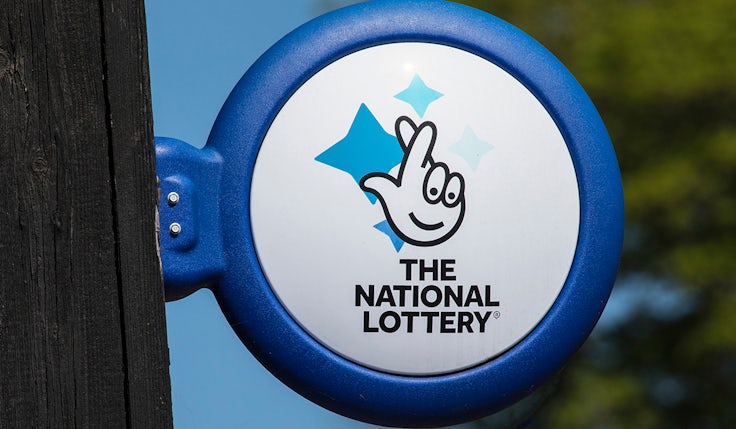
 The AA appoints group brand director
The AA appoints group brand director

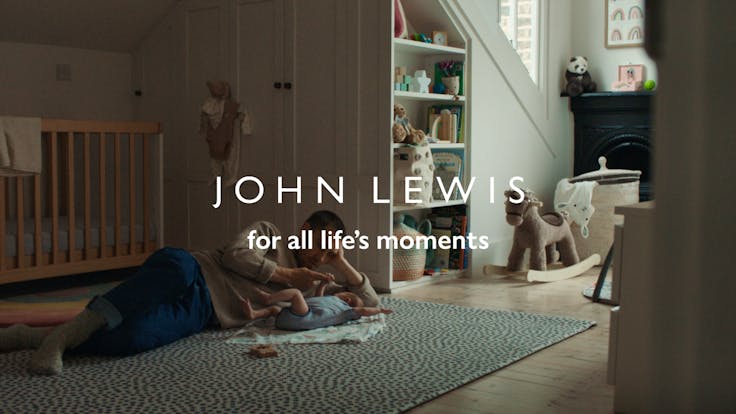




Comments